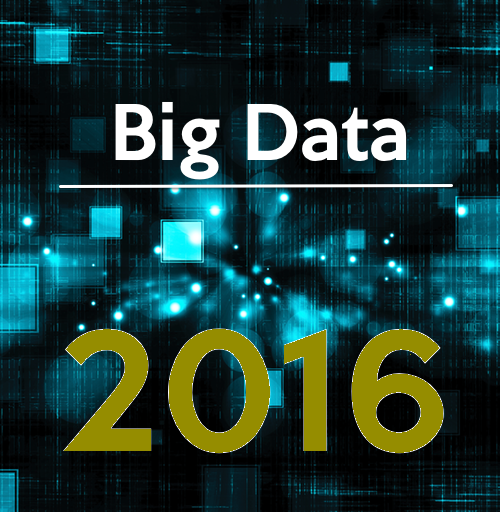Predictions of Big Data � 2016
Big or small, companies today are finding different ways to capture and use more data. Almost everyone agrees to this that Big Data has taken the business world by storm. But what’s next? What are the technologies which will develop around it?
Or Will data continue to grow; and can it become a relic as quickly as the next trend — Cognitive Technology? Fast Data? - appears on the prospect. Let’s look at some of the predictions from the foremost experts in the field, and how likely they are to come to pass and see how the push to make big data more mainstream and stronger in 2016.

- Volume of Data will grow. There’s absolutely no question that companies will continue generating larger and larger volumes of data, particularly considering the number of handheld devices and Internet-connected devices are expected to grow exponentially by 2020.
- Ways to examine data will advance. Though SQL is still the standard, Spark is rising as a paired tool for analyzing and will continue to grow, according to analysts.
- More tools for analysis. Microsoft MSFT +2.24% and Salesforce are recently announced features to let non-coders create apps to view business data, furthermore the tech experts are on developing more tools.
- Regulatory analytics will be built in to business analysis software. As per IDC predictions half of all business analytics software will be integrated to the intelligence by 2020.
- Real-time streaming insights into data will be the certifying the data winners moving forward according to Forrester. There will be huge growth as many users will want to be able to use data to make decisions in their real time with programs like Spark and Kafka.
- Device learning is going to be top strategic trend for 2016, according to Gartner predicts, we can see more that of device learning; as it will become the necessary element for data preparation and predictive analysis in businesses to move forward.
- BD will face vast challenges around privacy, especially with the new privacy regulation introduced by the European Union. Companies and businesses will be forced to address the ‘gaint in the room’ around their privacy controls and procedures. Gartner predicts that by 2018, more than 50% of business ethics violations will be related to Data.
- Companies will look for a Chief Data Officer. As per Forrester the future businesses will be in need of a CDO; who will see a rise in prominence in the short term. But again for certain types of businesses and even generational differences will see less need for them in the future.
- Independent agents and things will be the huge trends; Gartner includes that robots, autonomous vehicles, virtual personal assistants, and smart advisers will the future trends.

- Data staffing shortages will grow from analysts and scientists to include experts and architects in Data Management according to IDC.
- BD talent crunch may ease; as companies employ new strategies and the International Institute for Analytics predicts that organizations may increase their recruiting and provide internal trainings to get their personnel problems solved.
- Data-as-a-service model is on the scope. Forrester suggests that after IBM, more businesses will attempt to monetize their Data.
- Cognitive technology will be the new buzzword for many businesses in future, the link between cognitive computing and analytics will become identical in much the same way that businesses now see similarities between analytics and Big Data.
- Companies and Data businesses will grow; according to Forrester more companies and businesses will attempt to drive value and revenue from their data.
- Businesses using their data will see billions in productivity benefits; according to International Institute for Analytics this will happen over their competition not using data by 2020.
- Fast Data and Actionable Data is going to replace Big data; some of the experts say that argument is that big isn’t necessarily better when it comes to data, and that businesses don’t use a fraction of the data they have access too. Instead, the idea suggests companies should focus on asking the right questions and making use of the data they have — big or otherwise.
Time will only tell which of these predictions will come to real pass and which will merely pass into darkness. But the important takeaway will be all about Big data that is only going to get bigger and every business for and into data and for those companies that ignore it will be left further and further behind.






